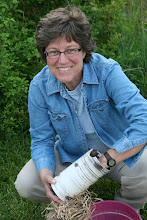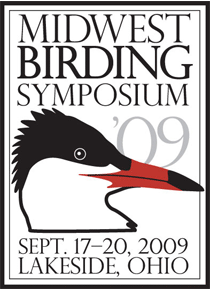In the Milking Parlor
On our way back through Pennsylvania, we stopped to visit old friends in Greencastle. Sometimes you hear people talk about starting a goat farm. Brad and Jenny really did it, about 16 years ago.
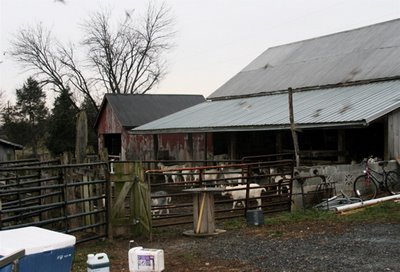
Pipe Dreams Farm is an unpreposessing looking place. It's not hi-tech, nor is it shiny and new. It's comfortable and alive and friendly and interesting. Seventy-five animals live here quite happily. Brad takes the flock on walks through the surrounding woods to vary their lives, and their diet. They follow him because they know and trust him.
I adore this little dairy, which is the only new building on the farm. Bill and I and some music friends from Baltimore played a housewarming gig there the year it was built, 1991, if I'm not mistaken.
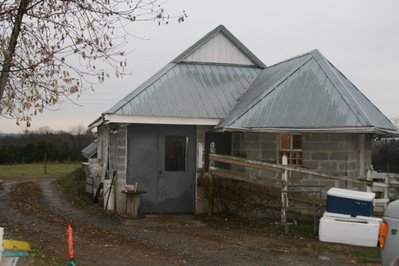 It was designed by Jenny, who is an architect. Our friend Richard, also an architect, helped to build it. Richard designed our tower.
It was designed by Jenny, who is an architect. Our friend Richard, also an architect, helped to build it. Richard designed our tower.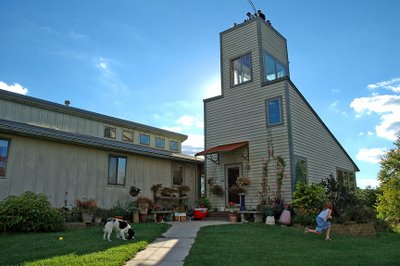
photo by James R. Hill III
Brad and Jenny's son Sam leads Liam up the ramp to the milking parlor. I love the eagerness on Sam's face, and the utter trepidation on Liam's. He's never pretended to be a goat before, but he's game. When he enters the milking parlor and the pungent scent of goat hits him, he staggers a bit but keeps true to the game. Since Liam has a supremely sensitive nose, I was very proud of my boy.
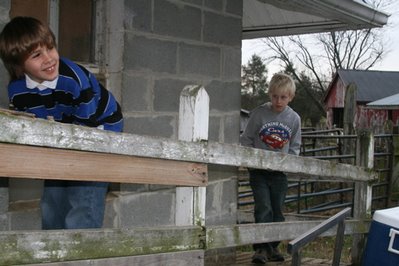
They're pretending to be goats, making horns. Brad swats them with a stick to keep them moving.
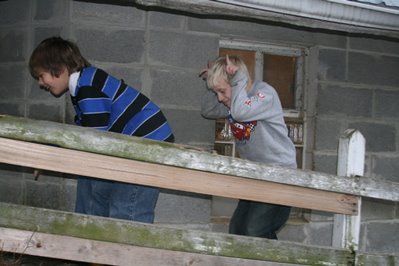
Once inside the milking parlor, the goats stand on an elevated concrete catwalk.
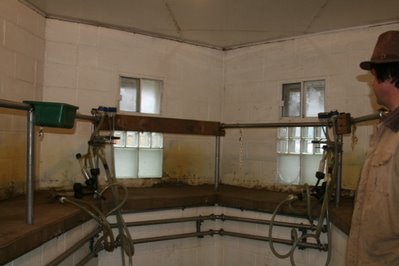
Brad tethers Dairy Goat Liam to the bar with a chain, and he sets to his feed.
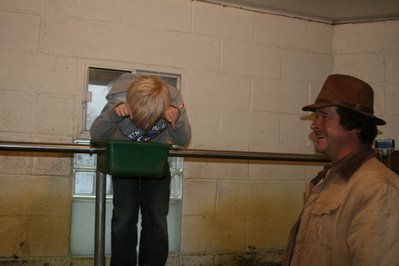
The feed is a coarse sweet feed, with whole grains and roasted soybean meal. Roasted soybeans get the protein farther down the digestive tract to the abomasum, the fourth and last chamber of the stomach, also known as the "true" or "glandular stomach." This helps boost milk production. Goats don't like roasted soybeans, though (it was a revelation to me that there is anything goats don't like, since I watched them gnawing on my clothes and some poison ivy vines outside) so the feed producers add molasses and other flavor enhancers to the feed to get them to eat it.
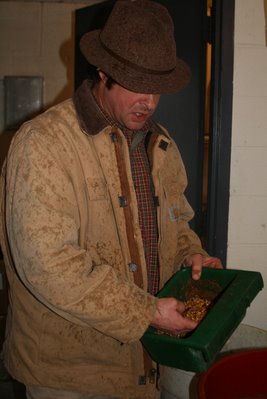 The goats eat happily while they're hooked up to the milking machines. Six can be milked at once in the parlor. When they're done, they exit via a small door at the top of the ramp, and another shift comes in to be milked.
The goats eat happily while they're hooked up to the milking machines. Six can be milked at once in the parlor. When they're done, they exit via a small door at the top of the ramp, and another shift comes in to be milked.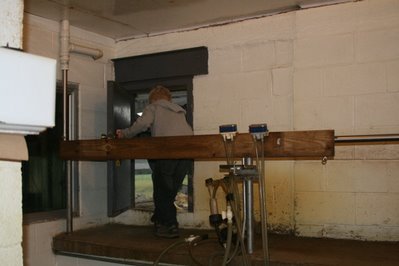
In high milking season, the milk runs through a pipe into the next room, into a big stainless steel cooling tank, where a paddle stirs it. This is the pipe that shunts it into the tank. There are filters in the pipe to keep any dirt from getting in the milk.
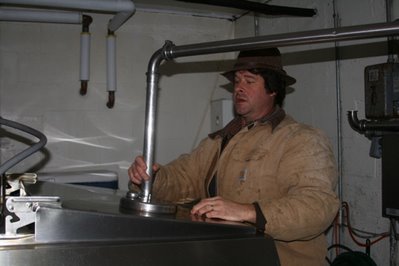
This time of year, though, when they're just about to dry up, the 40 or so goats still producing aren't giving enough milk to get deep enough for the cooling tank paddle to reach it, so the milk runs into clean 5-gallon joint compound buckets in the cooling room. Here are Brad's notes to his two employees:
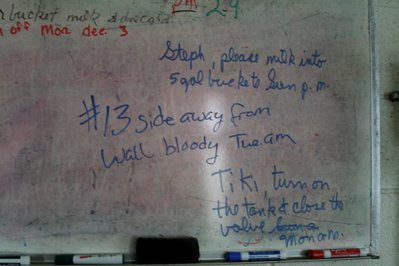
They include a note about one goat's bloody teat, something that needs to be attended to. Each animal is numbered, though I suspect they also get names.
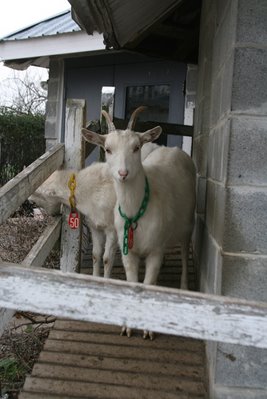
More about the personalities of goats in my next post.
This Christmas, my siblings all got mysterious Styrofoam coolers stuffed full of fresh Pipe Dreams Farm goat cheese for Christmas. I know my three sisters, like me, are nuts for it. Haven't heard yet from my brother...Goat cheese is something you either love or you don't love, like cilantro. You have to feel sorry for people who don't love it.
Labels: dairy goats, goat farm, milking parlor, sweet feed

